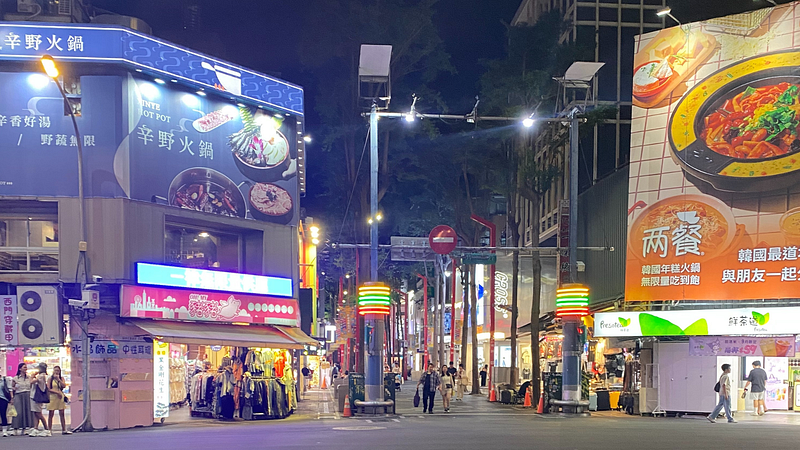Introduction
In 2025, I was accepted into the Master’s program in Computer Science and Information Engineering in Taiwan. It was an exciting moment — something I had worked hard for.
However, a few weeks later, I had to suspend my admission.
It wasn’t an academic decision —it was about the practical side of studying abroad: visas, housing, and daily life challenges I wasn’t fully prepared for.
Here’s what happened, and what I learned from it.
1. The Student Visa Confusion
One of the first mistakes I made was about the student visa process.
I thought the university would issue a student visa or at least help arrange it after arrival. But in reality, you must apply for the student visa from your own country before travelling to Taiwan — otherwise, you can’t enter as a student.
Because of that misunderstanding, I travelled to Taiwan without a student visa, assuming I could finalize it there. When I arrived, immigration officers asked about my visa type and return ticket. Since I didn’t have a return flight, I couldn’t enter the country.
I had to urgently buy an exit ticket on the spot just to be allowed to pass through.
That experience alone taught me one thing: even if you’re fully accepted to a program, the visa process is entirely separate — and universities often don’t handle it directly.
2. The Dormitory Experience
After sorting out visa issues, I also discovered that the dormitory situation wasn’t what I expected.
-
I stayed in a 4-person shared room — and when I entered, I realized my bunk bed didn’t have a mattress. You’re expected to bring your own bed or mattress, and there’s no option to purchase one from the dorm.
-
Internet access was also a challenge. The dorm only had Wi-Fi on the top floor, and even that connection was unstable. In the rooms, you could only use LAN internet — but my MacBook doesn’t have a LAN port, so I had to buy both a LAN cable and a converter. To get Wi-Fi on my phone, I used Wi-Fi sharing from my laptop, which made basic online tasks surprisingly complicated.
-
As for cooking — the dorm provides a stove, refrigerator, and microwave, but no pots, pans, plates, or utensils. So while cooking is technically allowed, the kitchen isn’t practical unless you bring everything yourself.
-
The room itself was old-fashioned, and there was no bidet in the bathroom, which can be uncomfortable depending on what you’re used to.
-
Since bills are shared among roommates, you can’t freely use air conditioning or electricity as you wish — you always have to consider everyone’s share.
3. The Language Barrier
Even though my program was in English, daily life wasn’t.
Dorm staff, local stores, and service providers mostly spoke Mandarin. Without knowing Chinese, even simple things — like asking for help, reading notices, or setting up utilities — became stressful and slow.
Most of the time, I had to rely on translation apps just to communicate or understand basic information.
4. Food & Daily Meals
One of the most unexpected challenges was finding proper food.
In the dorm, I had access to a stove, microwave, and refrigerator — but without cookware or basic ingredients, it was hard to cook real meals.
In the mornings, I usually bought something directly from the nearby bakery and ate it as it was. In the evenings, I usually ate from 7-Eleven, which offers quick meals and snacks, but after some time, it became difficult.
After a few weeks, I started to notice strange sounds from my stomach — probably from eating irregularly and consuming mostly reheated food. The 7-Eleven meals weren’t bad, but they weren’t what I was used to, and eating the same processed food every day was hard to adjust to.
It made me realize that when you move abroad, food habits are more important than you think — especially if you don’t have access to a proper kitchen setup.
5. Deciding to Suspend
After facing all of these — visa issues, dorm challenges, language barriers, and daily living difficulties — I decided to suspend my master’s studies.
It wasn’t an easy choice. Studying abroad had been a long-time goal of mine, but when the reality turned out to be much different than expected, I felt it was better to pause and reassess.
For now, I’ve decided to give myself time to think carefully about whether I truly want to continue this path in the future — and if I do, I’ll make sure to prepare much more thoroughly before taking the next step.
Final Thoughts
Studying abroad is an amazing opportunity, but it’s also a big lifestyle shift.
Before moving to another country, it’s important to understand the practical side of life there — from housing and food to communication and bureaucracy.
At this stage, I’m not sure whether I’ll continue the same program or take a different direction. What I do know is that this experience taught me a lot about planning, adaptability, and self-awareness.
Sometimes, pausing isn’t failure — it’s giving yourself the space to make a clearer, better decision for your future.

Bonus Tip for Turkish Citizens
-
If you’re a Turkish citizen with compulsory military service, there’s one more critical thing to know. To postpone your military service due to studying abroad, you must officially reside (have an address registration) in the country where you’re studying.
-
In Taiwan, this means completing your local address registration after you arrive. Without this address record, the Turkish consulate cannot process your military deferment.
Thank you for reading, I hope it is helpful. If you have any questions, feel free to ask on LinkedIn.
